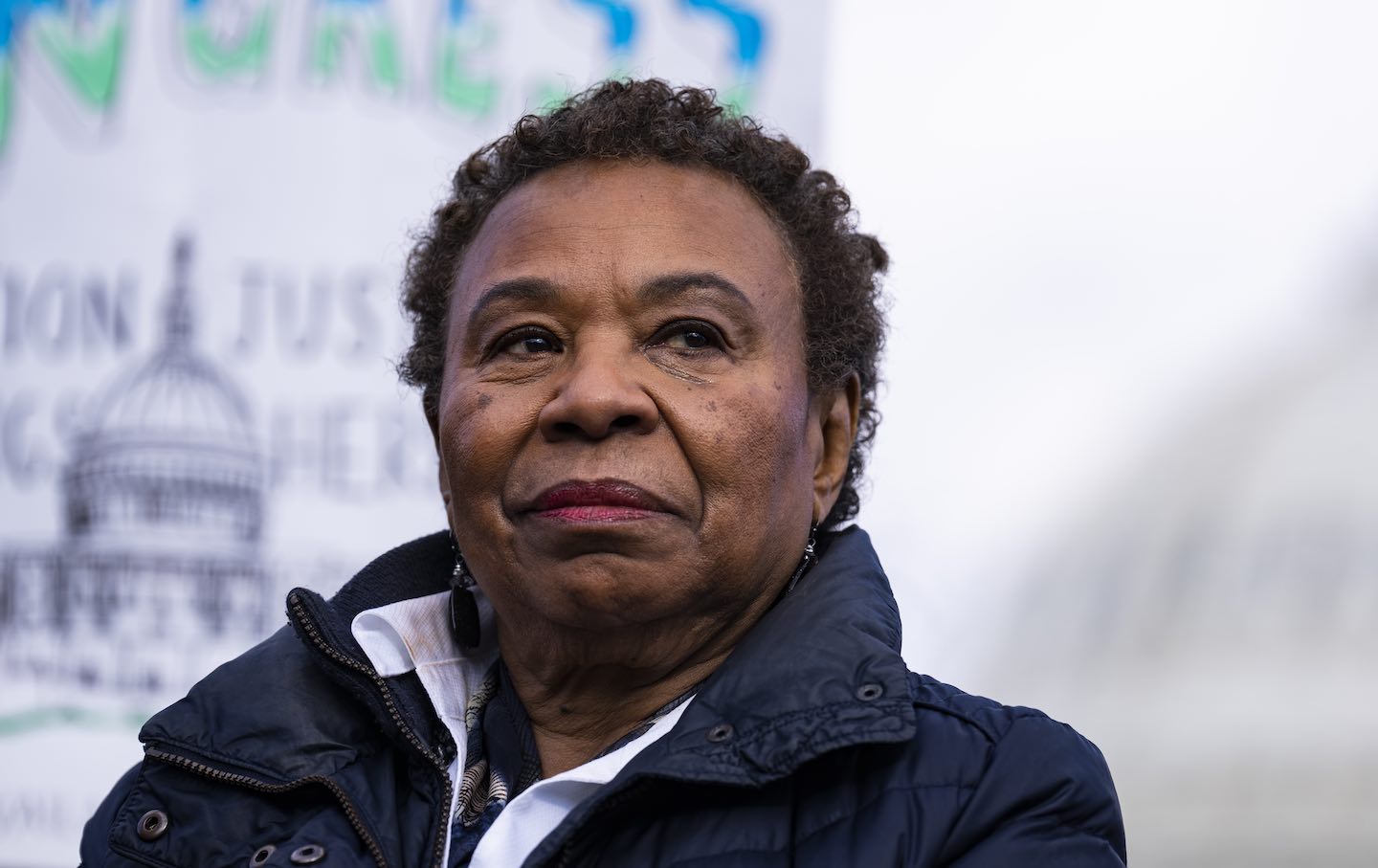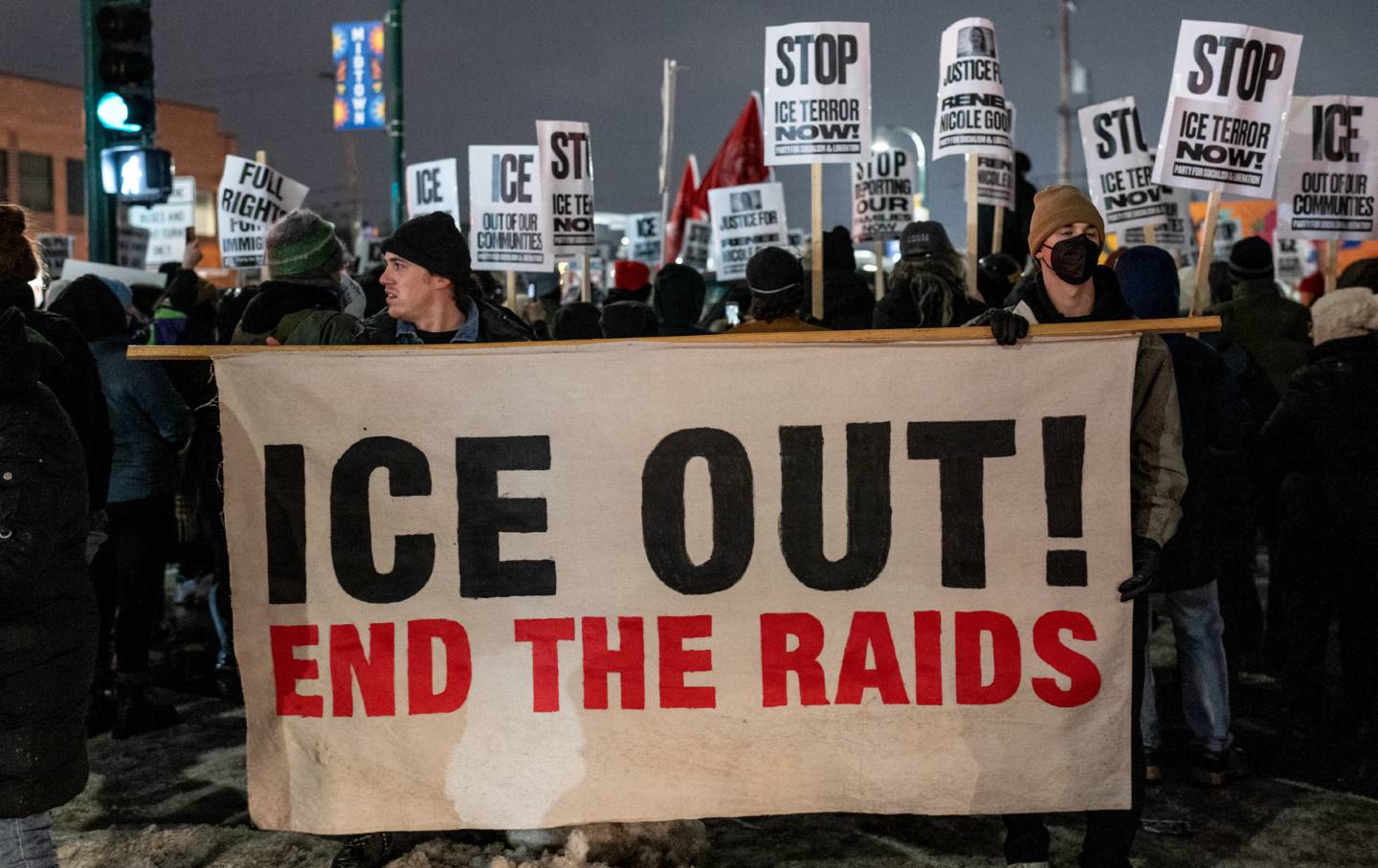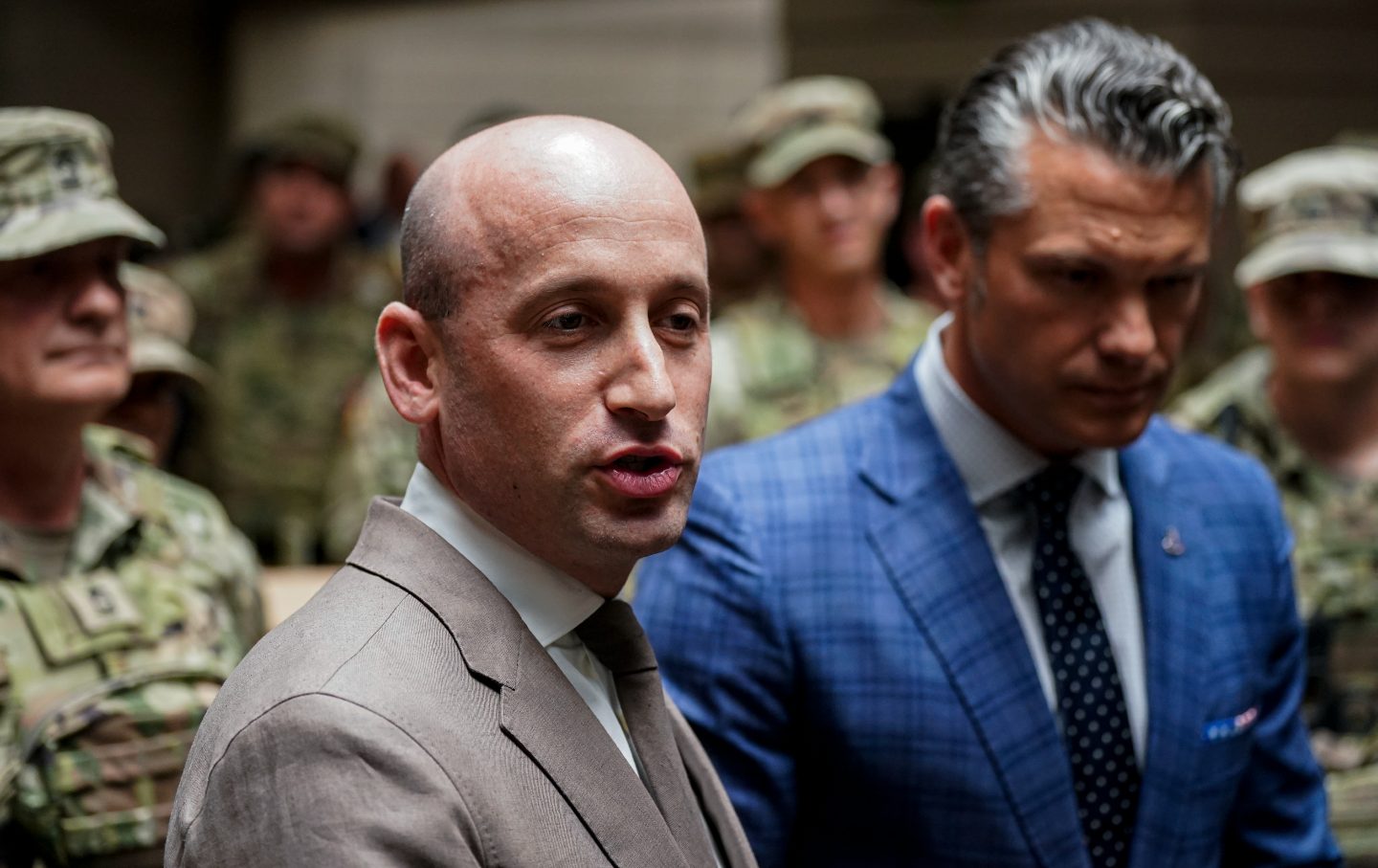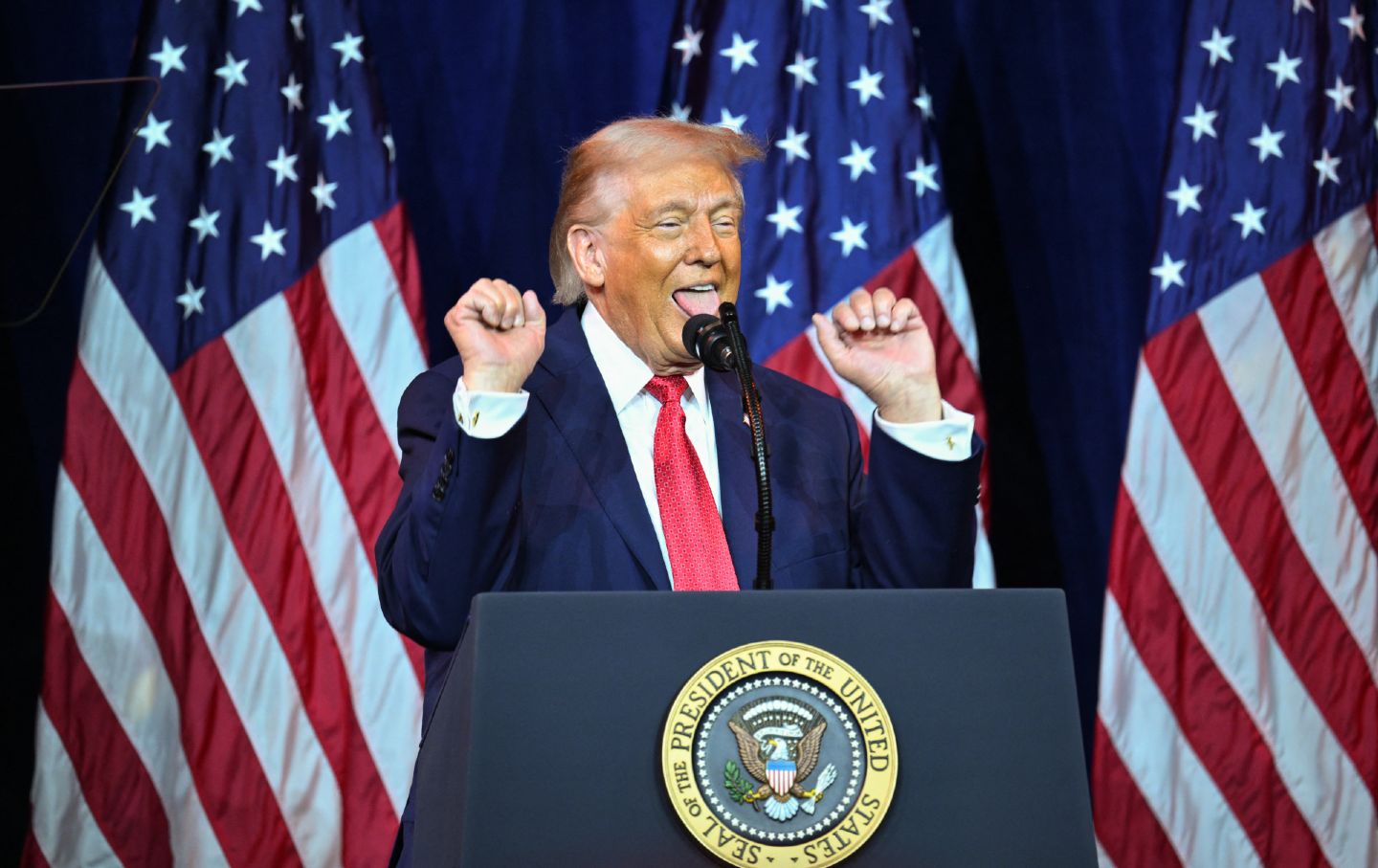The Reason Gavin Newsom Didn’t Appoint Barbara Lee Is the Reason She Should Be a Senator
Lee called out the California governor’s approach to filling the vacancy, maintaining her tradition of speaking truth to power. Newsom wasn’t impressed. But voters should be.

Representative Barbara Lee (D-Calif.) attends a news conference with the Pro-Choice Caucus on the reintroduction of the “Equal Access to Abortion Coverage in Health Insurance (EACH) Act,” outside the US Capitol on January 26, 2023.
(Photo: Tom Williams / CQ Roll Call)In the hours before California Governor Gavin Newsom appointed Emily’s List President Laphonza Butler to fill the Senate vacancy created by the death of Senator Dianne Feinstein, there was a last-minute push by the Congressional Black Caucus and prominent progressives to get the governor to appoint Representative Barbara Lee.
It was never going to happen. While Newsom had indicated that he would appoint a Black woman to the post, he excluded Lee—one of the most prominent Black women in American politics—from consideration. Lee is one of three US House members who announced bids to replace Feinstein, after she revealed her planned retirement in February. The governor signaled that, while he was committed to naming a woman of color, he didn’t want to give Lee the advantage of appointed incumbency. This was a new standard, developed by Newsom since his last appointment of a senator in 2021, when he chose Alex Padilla to replace newly elected Vice President Kamala Harris. As an appointed incumbent, Padilla ran for and easily won a full term in 2022. This time, Newsom said, he wanted to make an “interim appointment”—indicating an apparent preference for a caretaker senator who would merely finish out Feinstein’s term and then leave the Senate.
It was an absurd calculus, offering the prospect of a brief rather than ongoing expansion of representation for Black women in the Senate, and Lee called him out for it. The representative said in a statement, “The idea that a Black woman should be appointed only as a caretaker to simply check a box is insulting to countless Black women across this country who have carried the Democratic Party to victory election after election.”
That was the sort of response Californians have come to expect from Lee, an always courageous, always outspoken figure who, in the “unbought and unbossed” spirit of her friend and political mentor, former US representative Shirley Chisholm, has never hesitated to call out the absurd calculations of the powerful. That’s what she did when, in 2001, she cast the sole vote in the US House to deny George Bush and Dick Cheney a blank check for endless war. That’s what she’s done since then, as one of the chamber’s most consistent and effective advocates for diplomacy and disarmament. That’s what she did as a pioneering advocate for people with AIDS and as an unwavering champion of women’s equality who refused to compromise on abortion rights questions in the days when so many other Democrats wavered. That’s what she’s done since then as a key member of the Appropriations and Budget committees, as the former chair of the Congressional Black Caucus and the Congressional Progressive Caucus, as the current chair of the House Task Force on Poverty and Opportunity, and as a veteran representative who has often been recognized as the chamber’s steadiest advocate for peace abroad and justice at home.
There are costs that come with consistency. Instead of being rewarded for invariably standing on the right side of history, members of Congress like Lee are frequently dismissed by political and media elites as perhaps just a bit too pure—or, more likely, too unsettling to the defenders of status-quo politics. So Newsom found a way to pass Lee over, even when the Congressional Black Caucus and leading progressives made a last-minute push get the governor to reconsider.
Instead, Newsom went with Butler, a longtime fixture in California labor and corporate circles whose work with the Service Employees International Union and Emily’s List drew praise, just as her work with Uber and Airbnb drew criticism.
Sworn in on Tuesday, Butler is the first out Black lesbian to serve in Congress, and the sole Black woman in a Senate that is still too white and too male. She will, undoubtedly, join Newsom’s other appointee, Padilla, in serving as an effective Democratic senator who votes right on most issues and carves out significant areas of specialization and leadership.
Lee graciously congratulated Butler and signaled her willingness to work closely with the new senator. But, at the same time, Lee reemphasized her determination to be the next senator from California.
At a point when polls suggest that the vast majority of Californians, like the vast majority of Americans, are frustrated with politics as usual, Lee has established—not just in the current moment but over the past quarter-century—that she is ready to rock the boat, even when it may cost her politically. She is prepared to cast the lonely vote, call out the powerful, and do the right thing. Lee’s consistency has earned her respect even from those who disagree with her, helping the veteran legislator to build bipartisan coalitions, advance major pieces of legislation and to win the trust of presidents—who on eight separate occasions have selected the congresswoman to serve as the Congressional Representative of the United States to the UN General Assembly.
This combination of principle and productivity is what the progressives who advocated for her appointment emphasized in their messages to the governor.
“She is the obvious pick for Newsom to be true to his pledge,” said US Representative Ro Khanna, the Democrat who chose not to run for Feinstein’s seat and instead backed Lee. “She is the most qualified & most committed to running.”
Congressional Progressive Caucus chair Pramila Jayapal (D-Wash.) echoed that sentiment, saying, ”Nobody deserves an appointment to the Senate more than [Barbara Lee]. She has inspired millions & done the work.” And Congressional Black Caucus chair Steven Horsford (D-Nev.) in a letter from the caucus urging Newsom to appoint Lee, made the case for her as the best choice: “She is the only person with the courage, the vision, and the record to eradicate poverty, face down the fossil fuel industry, defend our democracy, and tirelessly advance the progressive agenda.”
These arguments remain true, even if Newsom chose to disregard them. Barbara Lee’s willingness to upset the status quo has never made it easy for her. She’s rarely had the inside track or enjoyed the favor of the powerful. She’s been forced to make her own way. This persistence and vision recommend her as exactly what’s needed in a Senate where a track record of speaking truth to power should be the highest qualification.








